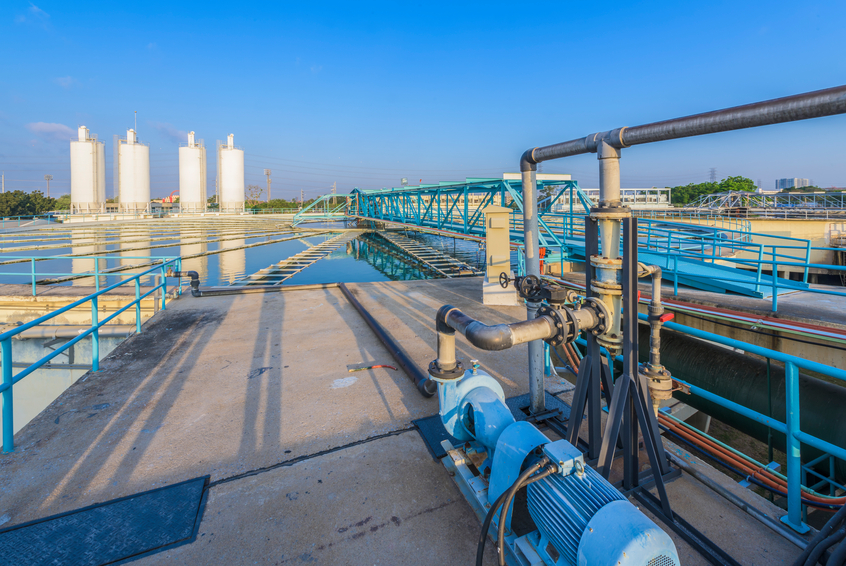Illinois Chemical and Laws/Rules/Ethics/Sexual Harassment 30 PDH Discount Package 3
Chemical Transformation Simulator (H02-013)
Chemical Safety for Sustainability (H05-005)
A Guide to Composting Toilet Construction (M01-020)
UV Disinfection Options for Wastewater Treatment Plants (C08-006)
Sexual Harassment Prevention for Illinois Professionals (IL1-002)
Engineering Laws, Rules, and Ethics for Illinois Professional Engineers (IL2-001)

This online engineering PDH course provides an introspective look into reducing CO2 emissions through comprehensive multi-sector and electric models.
The Inflation Reduction Act of 2022 (IRA) represents a significant legislative commitment to transform energy production and consumption, reduce the risks of climate change, improve environmental quality, and simultaneously spur investments that create economic opportunities. This course presents results from state-of-the-art multi-sector and electric sector models to assess how the IRA’s provisions reduce CO2 emissions.
This course is responsive to section 60107(5) of the Low Emissions Electricity Program within the IRA, which requires EPA to assess “... the reductions in greenhouse gas emissions that result from changes in domestic electricity generation and use that are anticipated to occur on an annual basis through fiscal year 2031.” This course primarily focuses on carbon dioxide (CO2) emissions because the vast majority of direct electric sector GHG emissions are from fossil fuel combustion and the increased use of clean electricity primarily offsets fossil fuel use in end-use sectors.
This 11 PDH online course is applicable to environmental and civil engineers, as well as others who are interested in gaining insight on CO2 emissions, and the solutions to reduce the negative effects of emissions.
This PE continuing education course is intended to provide you with the following specific knowledge and skills:
- Familiarizing with the emission reduction in multi-sector and electric sector models
- Gaining a general overview on the Inflation Reduction Act of 2022
- Familiarizing with the economy wide CO2 emissions analysis and results
- Learning about the key IRA provisions for the electric sector, the transportation sector, the building sector, and the industry
- Understanding sector analysis and results for electric sector, transportation sector, building sector and industry
- Learning about the different ways each sector can potentially contribute to air pollution and CO2 emissions
Upon successful completion of the quiz, print your Certificate of Completion instantly. (Note: if you are paying by check or money order, you will be able to print it after we receive your payment.) For your convenience, we will also email it to you. Please note that you can log in to your account at any time to access and print your Certificate of Completion.

This online engineering PDH course provides a guide for users on how to utilize the Chemical Transformation Simulator (CTS) tool.
The Chemical Transformation Simulator (CTS) provides the calculated physicochemical properties of a target chemical and its transformation products, which are predicted as a function of the reaction system of interest. This is accomplished through the integration of cheminformatics applications for the encoding of process science underlying transformation pathways and computational chemistry tools for the calculation of physicochemical properties.
This 2 PDH online course is applicable to chemical and environmental engineers, as well as other professionals interested in knowing how to use the CTS tool.
This PE continuing education course is intended to provide you with the following specific knowledge and skills:
- Familiarizing with the CTS tool and its restrictions
- Understanding the different CTS modules
- Learning how to execute the different CTS workflows
- Knowing how to generate reports
Upon successful completion of the quiz, print your Certificate of Completion instantly. (Note: if you are paying by check or money order, you will be able to print it after we receive your payment.) For your convenience, we will also email it to you. Please note that you can log in to your account at any time to access and print your Certificate of Completion.

This online engineering PDH course provides an overview of the new strategic plan developed by the U.S. Environmental Protection Agency (EPA) with regard to chemical safety.
The EPA’s Chemical Safety for Sustainability (CSS) National Research Program is focused on addressing the pressing environmental and health challenge of a lack of sufficient information on chemicals needed to make informed, risk-based decisions.
The impetus for the program is to meet the shared health and environmental protection goals of the Agency’s program and regional offices, states, and Tribes while performing transformative research, leading to improved science-based approaches that build broader understanding of biology, chemical toxicity, and exposure.
This 5 PDH online course is applicable to chemical and environmental engineers, as well technical staff and facility operators who are interested in gaining a better understanding of chemical safety.
This PE continuing education course is intended to provide you with the following specific knowledge and skills:
- Familiarizing with the CSS NRP Strategic Research Action Plan (StRAP)
- Knowing the vision and direction behind the program
- Understanding the different research topics and research areas of CSS research program
- Learning the possible methods of implementing the StRAP
- Familiarizing with the cross-cutting research priorities
Upon successful completion of the quiz, print your Certificate of Completion instantly. (Note: if you are paying by check or money order, you will be able to print it after we receive your payment.) For your convenience, we will also email it to you. Please note that you can log in to your account at any time to access and print your Certificate of Completion.

This online engineering PDH course presents the advantages of composting toilets over other systems such as latrines, water-sealed toilets and septic systems. In addition, this course discusses the construction process and the type of materials for composting toilets used in Tonga, Kiribati and Fiji.
In places lacking modern toilets and sanitation, latrines are used as temporary storage for human waste. The latrines are often emptied into the nearest body of water, which may also serve as a water supply. Composting toilets can provide a sanitary method of waste treatment in areas without running water or electricity. One of their greatest advantages is that they can be built anywhere, and usually for low up-front costs, making them excellent choices in rural or remote areas and undeveloped areas.
This 1 PDH online course is applicable to civil and mechanical engineers, aid workers and others involved in the planning or construction of projects in areas with limited sanitation infrastructure.
This PE continuing education course is intended to provide you with the following specific knowledge and skills:
- Familiarizing with the steps in constructing foundation slabs, chambers, ET beds, toilet house floor slab, false door, and access door
- Understanding the operation and maintenance of Composting Toilet
- Familiarizing with technical drawings of Composting Toilet Construction
- Learning about the technical specifications of Composting Toilet Construction
Upon successful completion of the quiz, print your Certificate of Completion instantly. (Note: if you are paying by check or money order, you will be able to print it after we receive your payment.) For your convenience, we will also email it to you. Please note that you can log in to your account at any time to access and print your Certificate of Completion.

This online engineering PDH course will provide a detailed evaluation of ultra violet (UV) technology as an alternative to conventional chemical disinfection methods used at wastewater treatment plants (WWTP).
Chlorination has been the preferred disinfection method used for treating WWTP effluent, but concerns about chemical releases, public safety, and the potential for chlorinated effluent to be toxic to aquatic life have caused municipal managers to consider other options. Although chlorine, sometimes followed by dechlorination, continues to be used at many municipal WWTPs, use of other means, such as UV disinfection, is increasing. UV is a technology capable of providing effective WWTP effluent disinfection while reducing safety and environmental toxicity issues.
There are many factors that must be carefully considered to verify that UV facilities are safe, reliable and economical. These issues include the cost of power and lamp replacement, lamp fouling, ability of the water to allow transmission of UV radiation, tailing, photoreactivation and regrowth of disinfected microorganisms, and dose selection.
This 8 PDH online course is intended for wastewater treatment engineers and environmental professionals seeking to gain an understanding of UV disinfection technologies. This course is also an excellent overview for those environmental professionals working in the field of water and wastewater treatment. A complete description of UV science is described along with its application to the disinfection of wastewater. The three major UV technology options are fully presented and compared. Results of a pilot demonstration are looked at to give the reader a real world example for evaluating UV technologies as an option for disinfecting wastewater at an existing plant.
This PE continuing education course is intended to provide you with the following specific knowledge and skills:
- General requirements of the USEPA Clean Water Act
- UV science
- Current UV disinfection technologies used in wastewater treatment
- Variations of alternative lamps and UV equipment
- Design and dose requirements of UV systems
- O&M requirements and costs of UV systems
- Support information for determining UV disinfection options
In this professional engineering CEU course, you need to review the NYSERDA Publication, "Evaluation of Ultraviolet (UV) Radiation Disinfection Technologies for Wastewater Treatment Plant Effluent".
Upon successful completion of the quiz, print your Certificate of Completion instantly. (Note: if you are paying by check or money order, you will be able to print it after we receive your payment.) For your convenience, we will also email it to you. Please note that you can log in to your account at any time to access and print your Certificate of Completion.

This online engineering PDH course presents a training on sexual harassment prevention to adopt and actively implement policies that ensure that workplaces are safe for employees to report and express their concerns about sexual harassment.
The Illinois Human Rights Act makes it a civil rights violation “[f]or any employer, employee, agent of any employer, employment agency or labor organization to engage in sexual harassment.” 775 ILCS 5/2-102(D).
The Illinois General Assembly finds that tolerance of sexual harassment has a detrimental influence in workplaces by creating a hostile environment for employees, reducing productivity, and increasing legal liability. Therefore, every employer in the State of Illinois is required to provide employees with sexual harassment prevention training that complies with section 2-109 of the Illinois Human Rights Act (“IHRA”).
This 1 PDH online course is applicable to professionals licensed in the State of Illinois and who are required to demonstrate continuing professional competency in sexual harassment prevention training as a condition of their license renewal.
This PE continuing education course is intended to provide you with the following specific knowledge and skills:
- Gaining an overview of sexual harassment prevention consistent with the Illinois Human Rights Act
- Familiarizing with types of unlawful sexual harassment, unwelcome behavior and working environment
- Learning about examples of conduct that may constitute unlawful sexual harassment
- Understanding sexual harassment in online environments
- Understanding employer responsibilities in the prevention, investigation, and corrective measures on sexual harassment
- Familiarizing with the Federal and State statutory laws concerning sexual harassment including remedies available to victims
- Exploring different workplace sexual harassment scenarios
Upon successful completion of the quiz, print your Certificate of Completion instantly. (Note: if you are paying by check or money order, you will be able to print it after we receive your payment.) For your convenience, we will also email it to you. Please note that you can log in to your account at any time to access and print your Certificate of Completion.

This online engineering PDH course presents the laws and rules of ethics and professional responsibility governing the practice of engineering in the State of Illinois.
Engineering ethics is (1) the study of moral issues and decisions confronting individuals and organizations involved in engineering and (2) the study of related questions about moral conduct, character, ideals and relationships of peoples and organizations involved in technological development (Martin and Schinzinger, Ethics in Engineering).
Excerpts from the Professional Engineering Practice Act of 1989, 225 ILCS 325 and the Illinois Administrative Code, Part 1380, which relate to the rules of profession conduct, continuing education requirements, proper use of seal and other pertinent regulatory provisions are presented in this course.
This 2 PDH online course is applicable to Professional Engineers licensed in the State of Illinois who are required to demonstrate continuing professional competency in the Illinois Laws, Rules and Ethics as a condition of license renewal. For each renewal period, every licensee must complete thirty (30) professional development hours, at least one (1) of the 30 hours must be in professional ethics and one (1) of the 30 hours must be in the laws and rules regulating the practice of engineering in the State of Illinois.
This PE continuing education course is intended to provide you with the following specific knowledge and skills:
- Familiarizing with the laws and rules regulating the practice of engineering in the State of Illinois
- Learning about engineering ethics, the rules of professional conduct and responsibility
- Understanding the role of the Illinois Board and its disciplinary authority
- Understanding the continuing education requirements in the State of Illinois
- Gaining an overview of disciplinary cases, violations and their corresponding penalties imposed by the Illinois Board
Upon successful completion of the quiz, print your Certificate of Completion instantly. (Note: if you are paying by check or money order, you will be able to print it after we receive your payment.) For your convenience, we will also email it to you. Please note that you can log in to your account at any time to access and print your Certificate of Completion.